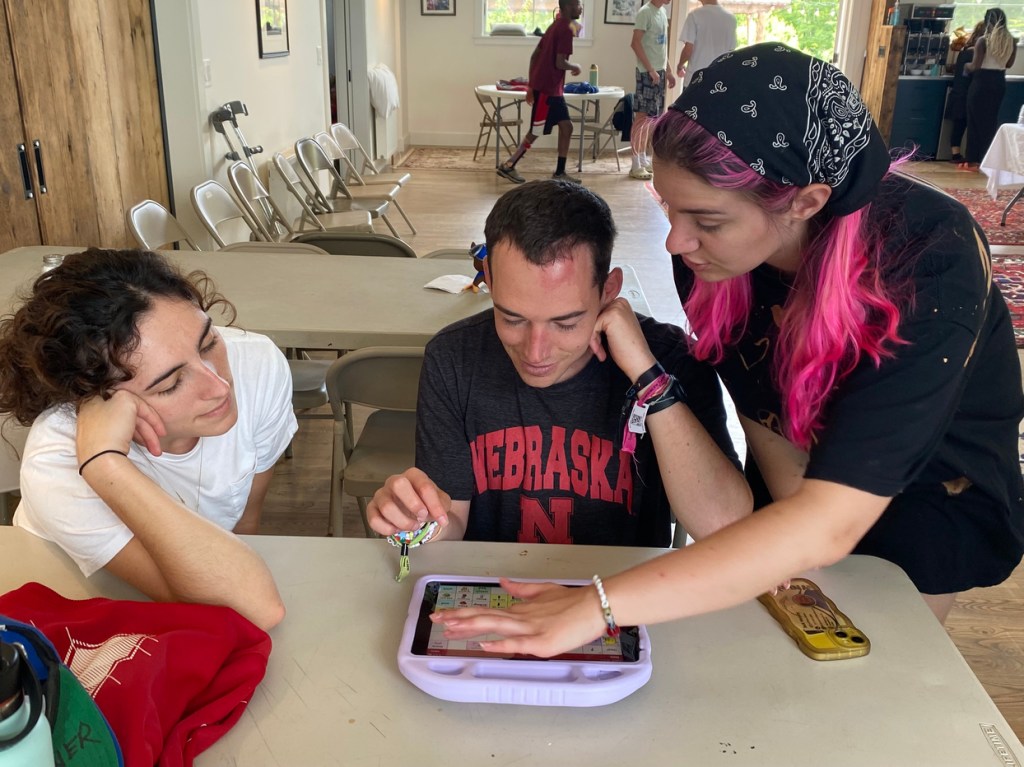What did the Class of 2025 really learn? A professor breaks it down in 10 life lessons
William Sharp’s address blended humor, personal stories, reflections and wisdom — drawing on insights from Freud to Mr. Rogers — into a top-10 list titled “Things Your Bachelor’s Degree May Actually Have Taught You.”
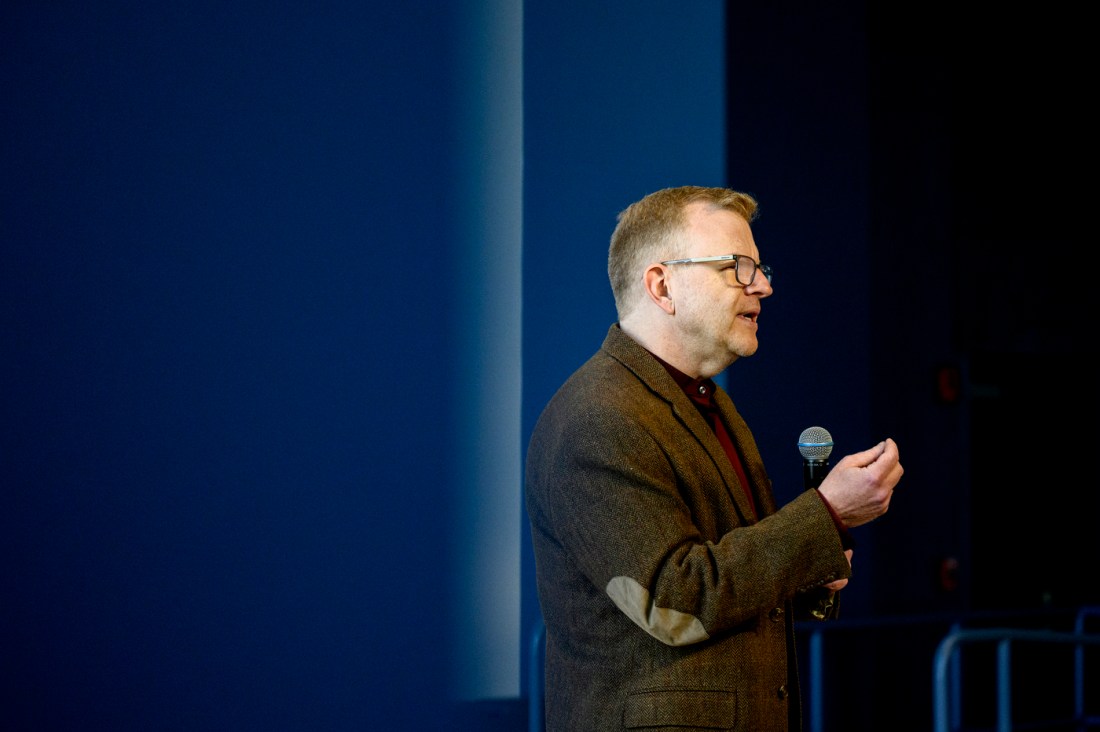
The Northeastern undergraduate Class of 2025 studied everything from American Sign Language to theater, completing courses in one — or more — of 329 possible majors and 199 combined majors.
But what did they really learn?
In the university’s annual Last Lecture, William Sharp, professor of psychology, summed it up in a top-10 list.
“I have lots of puns and some words in between them,” Sharp joked Thursday in Curry Ballroom on Northeastern’s Boston campus. “And for those of you who wanted a little bit of the wisdom part, here’s my attempt at that.”
The Last Lecture is a tradition that became popular in the mid-2000s after Randy Pausch, a professor at Carnegie Mellon University in Pittsburgh, delivered his final lecture at the school after discovering he had terminal cancer.
The lecture was turned into a book titled “The Last Lecture,” which became a New York Times bestseller in 2008. Since then, universities across the country have adopted their own last lectures for graduating students.
Sharp, a therapist and recently minted full professor as of Thursday morning — which he announced to applause — was selected by the Class of 2025 to deliver the Last Lecture.
The address blended humor, personal stories, reflections and wisdom — drawing on insights from figures as varied as Freud and Mr. Rogers — into a list titled “Things Your Bachelor’s Degree May Actually Have Taught You.”
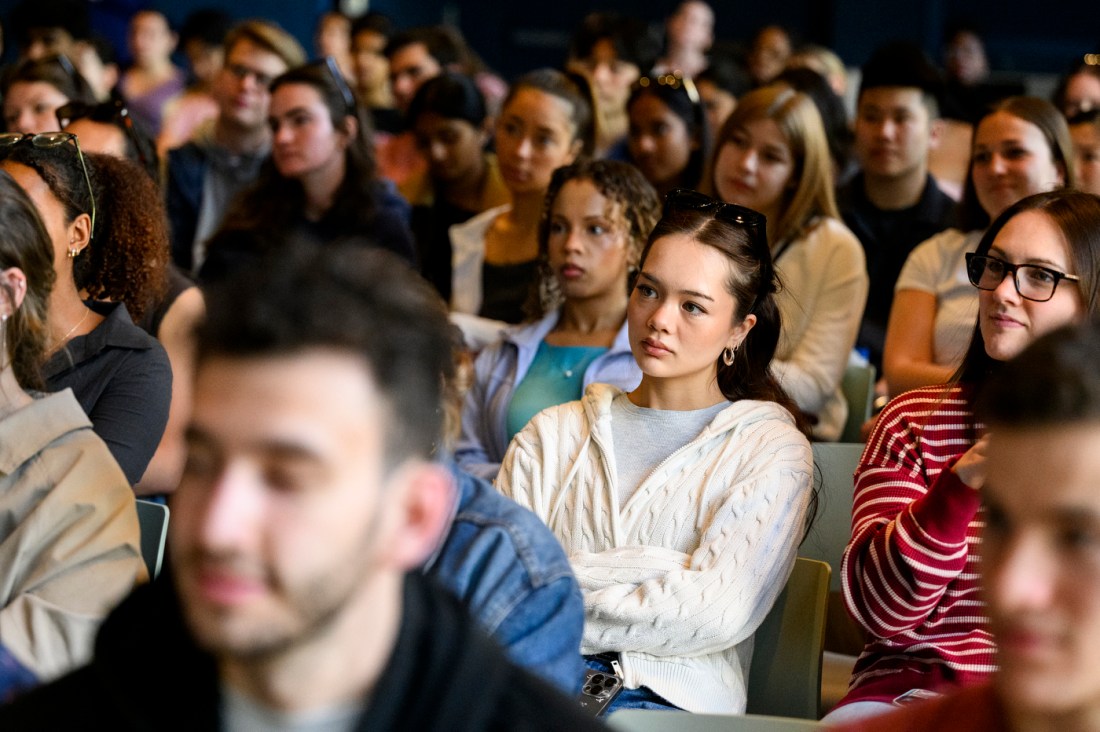
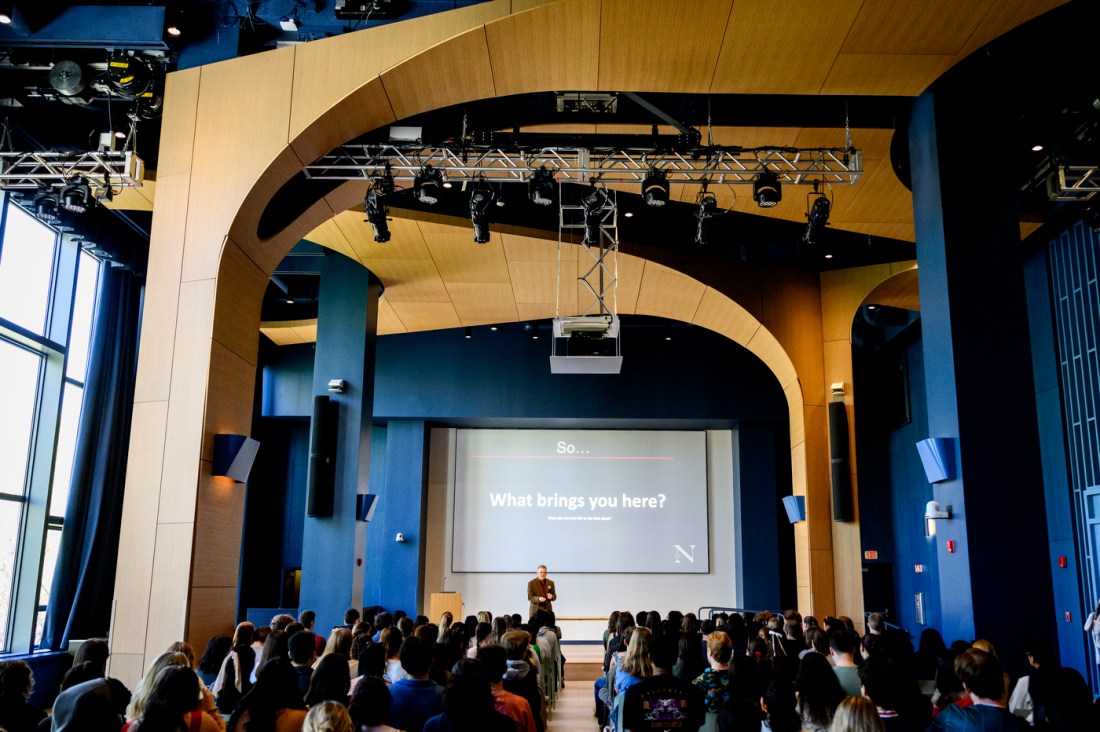
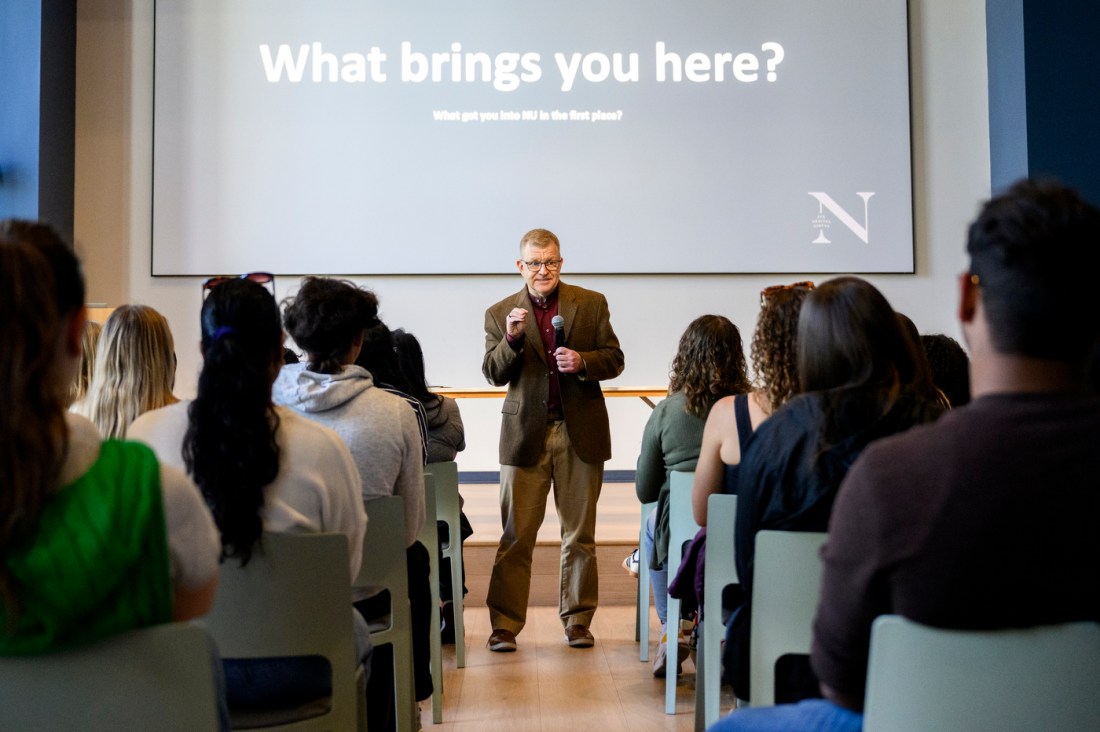
“You can do anything, but you can’t do everything,” Sharp said in explaining No. 10: ‘How to function on minimal sleep.’
“So going forward, try to focus on what you really want and try to get eight hours of sleep — that would be really good,” Sharp said.
Others entries described similarly practical skills, such as faking your way through a discussion when you haven’t read the assigned text (No. 9: the art of BS — or a B.A.) and the “superpower” of “selective seeing and hearing” (No. 4) as exhibited by students wearing headphones and staring at their phones while trying to cross the Green Line tracks on Huntington Avenue.
Editor’s Picks
But other entries were more philosophical.
“Make sure that you have some kind of personal significance and meaning in the work that you’re doing and, in terms of love, follow your heart,” Sharp said, explaining the Freud saying that “love and work are the cornerstones of our humanness” (No. 8).
He went from Freudian theory to economic theory in describing No. 3 on the list: “there are two forces in this world — one that unites and one that tears apart. Both are important.”
“It’s not like one is good and one is bad,” Sharp said. “We really need both.”
And No. 1: “‘Finding your people’ is what makes life rich,” according to Sharp.
In the end, amid the puns (“You need to soar — after all, a paper plane that doesn’t fly is just stationery”), the wisdom and even the dating advice, Sharp urged graduates to find a balance among competing forces in their lives.
“How are you going to find the right amount of excitement, of calming down; the right amount of love and hate; the right amount of work and play; whatever it is that’s the challenge that’s ahead of you,” Sharp said. “I do believe you’ve learned some of that here doing your bachelor’s degree.”






